Illinois Senate President Don Harmon recently suggested, in a Sun-Times op-ed, that adhering to current state remap deadlines without the latest census data would give a megaphone to those who have been silenced.
In his own anecdote, oddly presented as an example of why constituents should trust state lawmakers to draw maps that represent their interests, Harmon described his efforts to protect the interests of Oak Park even as he acknowledged that West Side and western suburban communities in his district had been carved up.
He also wrote that Black, Latinx, Asian, and other minority communities have been marginalized and silenced for far too long.
And yet, here we are, on the cusp of a remap, and lawmakers assert that they are the only ones who can be trusted to draw maps that are equitable and empowering to the communities they represent. Weren’t they the ones who silenced these communities of color in previous remaps?
Harmon’s claim that inclusion will be at the center of this process is dubious; no information has been released about the data lawmakers plan to use for the remap, nor what principles and guidelines the redraw will follow. And hearings begun this past week show little evidence of effort to include under-served voices.
Public hearings have been hastily scheduled without information provided to the public on how to meaningfully participate. We need more than the opportunity to testify; we need lawmakers to respond to our testimony and map proposals so we know if and how our input is being used. And these hearings need language access to include the input of non-English speaking communities.
In order to meet these ends, CHANGE Illinois worked with state Sen. Melinda Bush, D-Grayslake, to introduce SB2554. This bill would ensure fair and equitable public engagement in the mapping process and codify a higher standard for public engagement. Our proposal sets a minimum of 35 hearings across the state, and sets fairness standards compliant with state and federal laws to ensure communities of color have the opportunity to elect candidates of their choosing.
We’re pleased to see that the committee created a remapping website for the public at www.ilsenateredistricting.com, but more needs to be done to raise awareness. The website must include testimony, map submissions by the public, proposals being drafted by the committee and all documents, data and communications relevant to its work. A compliance report must be issued with any map proposal describing how the plan meets requirements in the Federal Voting Rights Act. Most importantly, there must be a period between the introduction of maps and votes by the chamber, so the public has a chance to view, understand and respond to map proposals.
Gerrymandering is the process of elected officials choosing their voters, instead of voters choosing their elected officials. And Illinois is a prime example of the harm gerrymandering is wreaking on our democracy. Gerrymandering creates career politicians and stifles compromise. Elected officials fear displeasing party leadership, because doing so can lead to their districts being unfavorably redrawn.
Seventy-five percent of Illinois voters say they want a more independent process. It is absolutely vital for your state legislators to hear from you. Urge your officials to support SB2554 to make certain that communities of color have the opportunity to elect their preferred candidates.
President Harmon, you’re right about one thing: communities of color have been marginalized and silenced for far too long.
We need maps that are drawn to truly represent the best interests of people across the state and allow them to meaningfully participate in our democracy. We need to empower communities to elect candidates of their choosing. To do this, Illinoisans deserve a truly transparent and equitable mapping process.
Syamala Krishnamsetty is the advocacy director for CHANGE Illinois, a nonpartisan nonprofit that works for ethics and efficiency in government.
